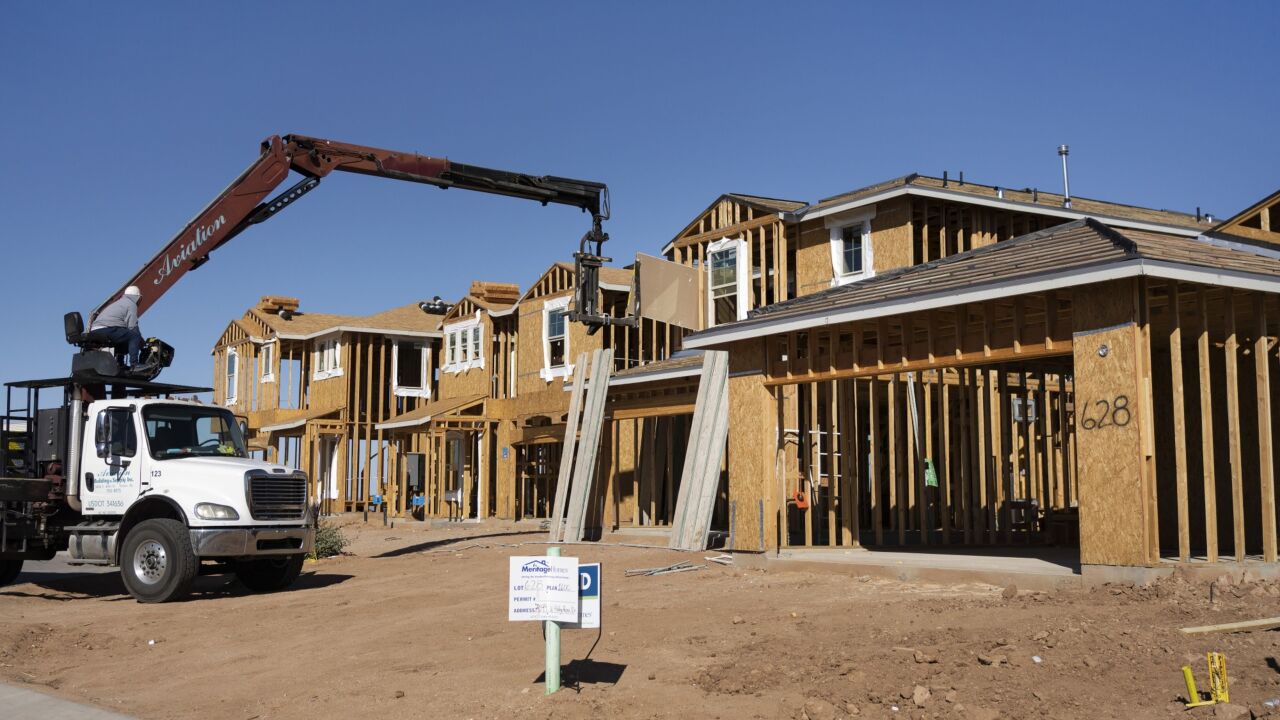
The Federal Housing Finance Agency is expected to decide in the not-so-distant future whether to proceed with finalizing a rule that would restrict membership in the Federal Home Loan Bank system. It would do so by unilaterally changing the long-standing meaning of the term "insurance company" to exclude captive insurance companies, including mortgage real estate investment trusts, or mortgage REITS.
The stated rationale for the FHFA's proposal is that captive insurers are not proper members of system. However, this is not only legally specious, it ignores more than 83 years of interpretation and broad-based membership policies that have made the FHLB a critical part of our housing finance market. Furthermore, this position fails to take into account that many existing FHLB members could be kicked out and forced to face restrictions on financing agreements already in place. The change would also dismiss the desire of well-capitalized, potential members, deeply interested in joining the system.
Mortgage REITs in particular are critical to the health and success of the mortgage markets. They have recently experienced a resurgence, having stepped into the void left by the mandated reduction in the government-sponsored enterprises' retained portfolios and the wind-down of the Fed's quantitative easing program.
They are connected to the FHLB system through captive insurance companies that are approved, licensed and regulated at the state level. The Federal Home Loan Bank Act allows "any...insurance company" to become a member of an FHLB, and the system has enjoyed captive insurance companies as members for more than two decades.
Unlike hedge funds or mutual funds, mortgage REITs are required by law to invest more than 75% of their capital in mortgages and real estate. Moreover, unlike the GSEs, mortgage REITs can originate and acquire non-qualified mortgage loans, providing many families with accessible, sustainable financing alternatives that would otherwise be unavailable or unaffordable. Put another way, mortgage REITs have both the ability and the incentive to make and acquire loans that will be critical to serving entry-level borrowers in the years to come.
One uncertainty mortgage REITs and other investors face relates to the wholesale funding markets, a critical source of debt capital. Regulations implemented since the crisis, coupled with new regulations on the horizon, have driven up the cost of obtaining this funding. These factors increase the costs consumers must pay for mortgages, in terms of both fees and interest rates.
This is why many mortgage REITs have turned to the FHLB. Just as it does for community banks, the system provides mortgage REITs with tremendous flexibility in matching funding maturities to the expected life of the mortgages they hold, dramatically reducing risk while increasing the number of borrowers who can be served.
In exchange, the system requires its members to over-collateralize their borrowings with high-credit quality assets — a key reason why the Home Loan banks have never experienced a loss in their advances portfolio.
The benefits to the system are clear. Strong members with a healthy appetite for advances increase the systems' revenue, resulting in higher annual dividends to FHLB members generally and increased contributions to affordable housing programs. Indeed, many Home Loan banks have commented that adding mortgage REITs as members have strengthened the system, and allowed the Home Loan banks to do more to serve community bank and other members.
The FHFA's proposed rule, if finalized, would permanently exclude these housing-focused members from the system. This would pull the rug out from under an emerging bright spot in today's housing market at the expense of borrowers who have few financing alternatives.
More than 1,200 stakeholders have commented on the proposed rule, urging FHFA to abandon it. The FHFA should heed this advice and ensure the system has a membership rule that serves the 21st-century housing finance market.
David Stevens is the president and chief executive of the Mortgage Bankers Association.





